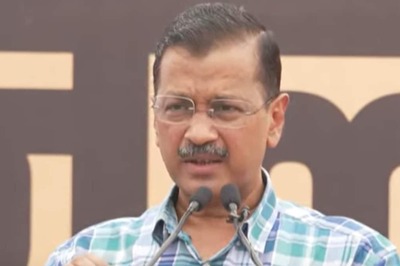
views
Several UK patients have received a revolutionary cancer vaccine as part of a global trial. Scientists are using the mRNA technology used to make the Covid vaccine to create new vaccines that can treat and even cure cancer.
The early-phase Mobilize trial led by scientists at Imperial College NHS Healthcare Trust and Imperial College, London, is part of the British government’s partnership with Moderna to develop mRNA cancer vaccines in the UK.
These vaccines highlight specific protein markers on the cells of a cancerous tumour to the immune system of a patient. The patient’s own immune system then builds up a defence and attacks the cancer, which was previously undetected.
The patients at the Hammersmith Hospital, in west London are the first in the UK to be tested with these jabs. The study will focus on the safety and effectiveness of the vaccine against lung cancer, skin cancer and other “solid tumours”, researchers told UK-based news media outlets.
The first man to receive the vaccine, dubbed mRNA-4359, is an 81-year-old man from Surrey with skin cancer. He saw limited success with other treatments and then decided to take part in the trial.
“The vaccine has the potential to save even more lives while revolutionising the way in which we treat this terrible disease with therapies that are more effective and less toxic. It underlines our position as a life sciences superpower and our commitment to research and development,” Victoria Atkins, the health secretary, was quoted as saying by The Telegraph.
She said the “ground-breaking development” could make a difference to “countless lives”.
Scientists are excited about mRNA therapy because they believe it could revolutionise cancer treatment.
There are two main types of cancer vaccine which are being developed globally by scientists. The other form of the cancer vaccine that is in the works is a “personalised” one and will require taking genetic material from a person’s tumour to create a vaccine specifically for them.
The Telegraph said experts are hoping that the mRNA cancer vaccines will serve as “ready made” and “off-the-shelf” vaccines that can be administered to multiple cancer patients with a specific type of cancer rather than having to be personalised for individuals. But, unlike traditional vaccine which are preemptive in nature, like vaccines to prevent illness from contagious viruses such as measles and smallpox, these vaccines will be given to those patients who are suffering from cancer.
Creating a universal cancer vaccine is challenging due to the unique nature of each tumour and individual. However, scientists are developing vaccines that target common markers on cancer cells and eradicate tumours and prevent recurrence. This approach offers hope for the evolving cancer treatment to turn into a potential cure.
“We desperately need these to turn the tide against cancer. New mRNA-based cancer immunotherapies offer a new avenue for recruiting the patient’s own immune system to fight their cancer. This research is still in the early stages and may be a number of years from being available to patients, but this trial is laying crucial groundwork that is moving us closer towards new therapies that are potentially less toxic and more precise,” Dr David Pinato, consultant oncologist and scientist at Imperial College was quoted as saying by The Telegraph.
“The NHS is at the vanguard of trials of cancer vaccines, which could be revolutionary if we are successful in vaccinating people against their own cancers to prevent them growing back after treatment,” professor Peter Johnson, the NHS national clinical director for cancer, was quoted as saying by The Telegraph.




















Comments
0 comment